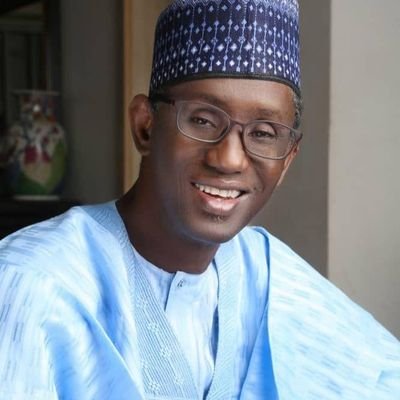Efforts to resume oil drilling in Ogoniland, a region marred by decades of environmental degradation and unrest, took a significant step forward as National Security Adviser (NSA) Mallam Nuhu Ribadu was named chief negotiator by President Bola Tinubu.
This development comes more than three decades after oil production in Ogoniland was halted in 1993 amid widespread protests against environmental pollution and human rights violations linked to oil exploration by the Shell Petroleum Development Company.
A Historical Struggle
The protests, spearheaded by the late Ken Saro-Wiwa and the Movement for the Survival of the Ogoni People (MOSOP), highlighted the devastating impact of oil operations on Ogoni communities. The movement gained international attention but came at a high cost, as Saro-Wiwa and eight other activists—later dubbed the “Ogoni 9″—were executed by the military regime of General Sani Abacha in 1995.
Their deaths left a lasting scar on the Ogoni people and amplified demands for environmental justice, economic reparations, and corporate accountability.
Tinubu’s Meeting with Ogoni Leaders
On Tuesday, January 21, President Tinubu convened a high-level meeting at the Presidential Villa in Abuja to discuss the resumption of oil activities in Ogoniland. Attendees included Rivers State Governor Siminalayi Fubara, Ogoni leaders, and federal officials.
Prominent figures at the meeting included the Group Chief Executive Officer of the Nigerian National Petroleum Company Limited (NNPCL), Mele Kyari; Minister of Environment, Balarabe Abba; and Minister of Regional Development, Abubakar Momoh. Senator Magnus Abe, Victor Giadom, and Dr. Owens Wiwa—brother of the late Ken Saro-Wiwa—were also present, alongside representatives of MOSOP.
President Tinubu reportedly emphasized his personal connection to the Ogoni struggle, describing himself as an “activist deeply knowledgeable about the injustices done against Ogoni people by oil companies and the military.”
Ribadu Takes the Helm
The appointment of Ribadu as chief negotiator marks a strategic move to bridge the long-standing divide between the federal government, oil corporations, and the Ogoni people. Ribadu, known for his role in leading Nigeria’s anti-corruption agency, the Economic and Financial Crimes Commission (EFCC), brings a reputation for integrity and problem-solving to the negotiations.
A source privy to the discussions revealed that the Ogoni delegation plans to consult widely with local stakeholders before making any commitments. “The leader of the Ogoni people stated that they will go back home and consult widely with their people,” the source said.
Demands for Justice and Accountability
During the meeting, Dr. Owens Wiwa reiterated calls for the exoneration of his brother Ken Saro-Wiwa and the eight other Ogoni activists executed in 1995. “Ken Saro-Wiwa’s younger brother, Dr. Owens Wiwa, is in attendance to demand from the Nigerian government an exoneration of his brother and eight other Ogoni activists,” a source disclosed.
The activists, who had opposed the practices of the Royal Dutch Shell oil corporation, became global symbols of the fight against environmental injustice and corporate exploitation in developing countries.
Challenges Ahead
The resumption of oil activities in Ogoniland faces significant hurdles, including lingering mistrust between the Ogoni people and the federal government. Years of neglect, coupled with unfulfilled promises of environmental remediation, have fueled skepticism about the sincerity of recent efforts.
The United Nations Environment Programme (UNEP) released a report in 2011 detailing the extensive contamination in Ogoniland and recommended urgent cleanup measures. However, progress on the cleanup has been slow, with many Ogoni residents still grappling with polluted water, health issues, and economic hardship.
Ribadu’s task will not only involve negotiating the terms of oil resumption but also addressing these deep-seated grievances. Experts suggest that securing Ogoni trust will require tangible actions, such as accelerated cleanup efforts, compensation for affected communities, and guarantees of fair revenue-sharing agreements.

